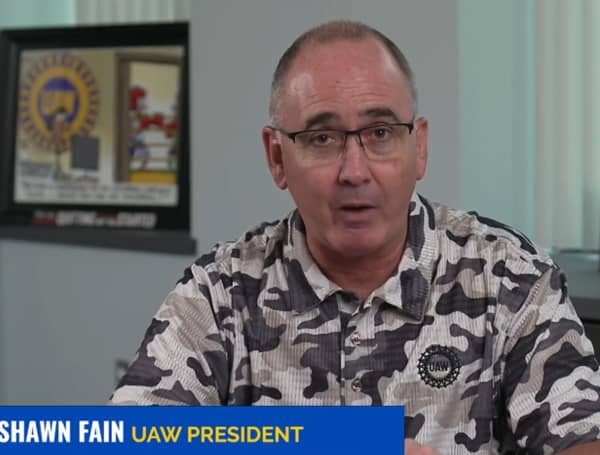In a major escalation of his “Made in America” agenda, President Donald J. Trump today imposed a 25% tariff on all foreign-made automobiles imported into the United States, signaling a dramatic shift in U.S. trade policy aimed at revitalizing domestic manufacturing and bringing union jobs back to American soil.
The move was immediately hailed as a victory by the United Auto Workers (UAW), one of the country’s largest labor unions, which called the action a long-overdue correction to decades of what it described as a “free trade disaster.”
READ: GOP Warns Of Close Margins In Florida Special Election
“Ending the race to the bottom in the auto industry starts with fixing our broken trade deals, and the Trump administration has made history with today’s actions,” said UAW President Shawn Fain in a statement. “These tariffs are a major step in the right direction for autoworkers and blue-collar communities across the country.”
The tariff applies to both passenger cars and trucks and is expected to shake up an auto market heavily reliant on foreign production. The UAW pointed to decades of plant closures, job offshoring, and wage suppression as evidence of an industry in need of aggressive intervention.
The union believes the tariffs could swiftly bring back thousands of union auto jobs by encouraging automakers to increase domestic production. Across the country, plants operated by Ford, General Motors, and Stellantis have faced layoffs and declining output as companies shifted production to lower-wage countries like Mexico.
READ: Trump’s Plans To Deport Foreign Radicals Temporarily Halted
Among the affected facilities are:
- Ford Michigan Assembly (Wayne, MI)
- GM Lansing Grand River (Lansing, MI)
- Stellantis Warren Truck Assembly (Warren, MI)
- Volkswagen Chattanooga (Chattanooga, TN)
In several of these plants, shifts have been eliminated, production has slowed, or facilities have been idled altogether. The UAW argues that with the right incentives — and pressure — these factories could return to full capacity, reviving local economies in Michigan, Ohio, Tennessee, and beyond.
One example: over 1,000 autoworkers remain laid off at Stellantis’ Warren Truck Assembly, even as the company builds $100,000 pickup trucks in Mexico for a fraction of the labor cost.
READ: Trump Signs Sweeping Executive Order To Overhaul Federal Election Integrity Standards
Today’s tariff announcement marks the most significant break from decades of bipartisan free trade policy since the North American Free Trade Agreement (NAFTA) was enacted in the 1990s. The UAW is now urging the Trump administration to go further by renegotiating the U.S.-Mexico-Canada Agreement (USMCA), which it says continues to incentivize offshoring.
The union laid out a series of demands for future trade deals, including:
- A North American minimum wage to level the playing field for workers;
- Stronger labor protections and penalties for offshoring;
- Reshoring and investment in the auto parts supply chain;
- Ensuring American-made parts are used in U.S.-assembled vehicles.
Fain emphasized that the working class is not concerned with party politics, but rather with results: “The UAW has been clear — we will work with any politician, regardless of party, who is willing to reverse decades of working-class people going backwards in the most profitable times in our nation’s history.”
The UAW warned automakers not to pass the cost of tariffs onto consumers and called on the federal government to step in if necessary to protect workers during the transition. The union is pushing for legislative or regulatory measures that would require corporations to absorb the impact of tariffs rather than shifting the burden to car buyers.
READ: CNN Legal Analyst Breaks Down Why Prosecuting Trump Admin Signal Leak Could Be ‘Tricky’
“The auto companies have been given time to plan,” Fain said. “Now it’s time to act.”
The Trump administration has not released further details on whether additional tariffs in related sectors — such as heavy trucks or auto parts — are forthcoming, but union leaders are pressing for broader action.
For now, the new tariff marks a defining moment in the nation’s trade policy — one that could reshape the U.S. auto industry and labor landscape for years to come.
Please make a small donation to the Tampa Free Press to help sustain independent journalism. Your contribution enables us to continue delivering high-quality, local, and national news coverage.
Connect with us: Follow the Tampa Free Press on Facebook and Twitter for breaking news and updates.
Sign up: Subscribe to our free newsletter for a curated selection of top stories delivered straight to your inbox.
